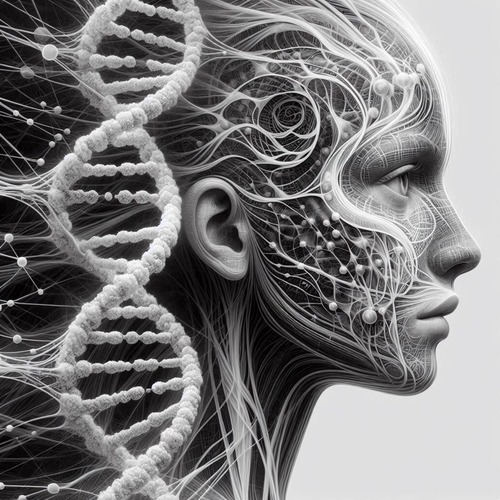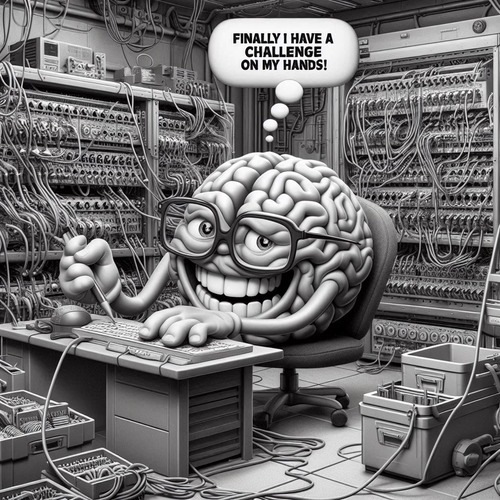The Kalam Cosmological Argument: A Case For God
EVERYTHING THAT BEGINS TO EXIST HAS A CAUSE…
Exploring the Cosmic Origins of Existence
What lies beyond the farthest reaches of space and before the birth of time itself? This profound existential question has captivated philosophers and scientists across epochs and cultures. The Kalam cosmological argument beckons us to peer beyond the misty veil of the Big Bang and contemplate the ultimate metaphysical reality: the origin of the entire universe from literally nothing.
In this metaphysical odyssey tracing backward through cosmic history, we encounter signs that may unmistakably point towards a transcendent, supernatural source of all reality—an eternally existent, omnipotent Creator. This ancient argument, first developed by medieval Islamic thinkers, rests on three deceptively simple premises that carry seismic implications.
Arising from medieval Islamic philosophy, this ancient argument offers three powerful, yet simple, premises that have reverberated down the ages like the voice of a wise prophet:
- Everything That Begins to Exist Has a Cause
- The Universe Began to Exist
- Therefore, the Universe Has a Cause
Sceptics point to the diversity of beliefs and rampant non-belief, and ask: if God truly exists, and His existence is that obvious, why are there all these varied responses? Or why doesn’t everyone recognize God as the universe’s first cause?
The multitude of our views about, and responses to, God doesn’t necessarily prove the non-existence of God. While we may all have an innate awareness of God’s existence, we each respond to this awareness in our own ways. Buried within the multiplicity of religions and philosophies, we consistently find core tenets hinting at something transcendent–a belief in realms beyond the physical, the existence of moral codes, an awareness of human sinfulness, a search for purpose and meaning. Even those professing atheistic worldviews wrestle with life’s biggest metaphysical questions.
The Christian may also remind the sceptic of Blaise Pascal’s suggestion that there’s a God-shaped vacuum in each of us that only the real God can fill, and the pretenders can’t. No pursuit of idols, or wealth, or power, or pleasure can ultimately fill this vacuum. Till we come to Him, we have a nagging sense there is something more to existence, some transcendent meaning and purpose we were created for, but are yet sadly missing.
Conclusion: The Implications of the Kalam Cosmological Argument
From the premises of the Kalam Cosmological Argument, a stunning conclusion emerges: the existence of an eternal, necessary, and immensely powerful First Cause or Creator. This First Cause is beyond the physical and temporal universe, existing independently and uncaused. Such a being is fundamentally different from the dependent, finite world we experience.
The Kalam offers a clear philosophical path to understanding God’s existence and essential attributes. It suggests an unimaginably great, eternal, simple, uncaused, supernatural, and incredibly powerful Source that is radically distinct from our finite cosmos. This conclusion may seem astonishing, but it leads us to the idea of a Supreme Reality—one that supports the entire structure of material existence. This reality is what we fittingly call God.
The Kalam presents a logical and straightforward explanation for the mysteries of the universe’s origin. For those open to exploring these profound questions, the argument offers a strong case for God’s existence, encouraging deeper philosophical and existential reflection. At the very least, the Kalam points us towards the vast, unexplored realms of existence, prompting us to consider the infinite mysteries that lie beyond our physical reality.
Related Reads:
- The Ontological Argument: Can We ‘Logic’ Our Way to God?
- Aquinas’ Quinque Viae: Timeless Arguments for the Existence of God
- The Universal Moral Oughts: Signposts to the Divine
- The Teleological Argument: Unveiling Design in a Universe of Wonder
- The Fine-Tuning Argument: Can Orchestras Compose and Conduct Themselves?
Editor's Pick

Sacred Sorrow: Why Jesus Calls Mourning a Blessing
MAKING SENSE OF THE DIVINE PARADOX IN MATTHEW 5:4 When Jesus declared, “Blessed are those who mourn, for they will [...]

‘Sell Everything You Have…’: Are We To Do So Literally?
When Jesus encountered the rich young ruler in Matthew 19:21, His words cut through with startling clarity: “If you want [...]

Why Jesus Said ‘It’s Better I Go Away’…
THE SUPERIOR GIFT OF THE HOLY SPIRIT “Nevertheless, I tell you the truth: it is to your advantage that I [...]

What About Those Who’ve Never Heard the Gospel?…
WILL GOD SHOW THEM MERCY ON JUDGEMENT DAY? Few questions tug at the Christian’s heart like this one. Picture the [...]

Cities of Refuge: Foreshadowing Our Safe Haven in Jesus
Picture this: A man is chopping wood with his neighbour when the axe head flies off the handle, striking and [...]

Testament to Design: The Engineering Marvel of Elephants
Picture an African elephant delicately plucking a single acacia leaf with the tip of its trunk, then moments later using [...]

Blue Whales: Mammoth Icons of Intelligent Design
Imagine an animal so massive its heart alone weighs as much as a small car, yet so precisely engineered it [...]

Do Unbelieving Kids Disqualify Church Leaders?
REFORMED PERSPECTIVES ON 1 TIMOTHY 3 AND ELDER QUALIFICATIONS Every pastor knows the heartbreak. A faithful elder who has served [...]

Why Did God Kill Onan? Wasn’t the Punishment Disproportionate?
The story of Onan in Genesis 38 troubles many. Why would God strike down a man for what seems like [...]

Is God Preparing Me for Ministry? How May I Know for Sure?
The question haunts many faithful believers. You’re serving faithfully in your local church, perhaps teaching Sunday school or leading a [...]
SUPPORT US:
Feel the Holy Spirit's gentle nudge to partner with us?
Donate Online:
Account Name: TRUTHS TO DIE FOR FOUNDATION
Account Number: 10243565459
Bank IFSC: IDFB0043391
Bank Name: IDFC FIRST BANK






